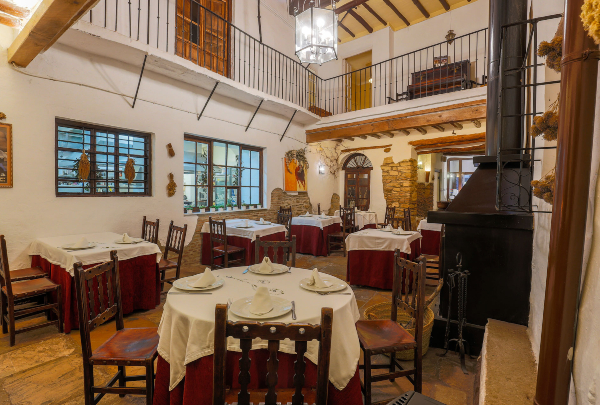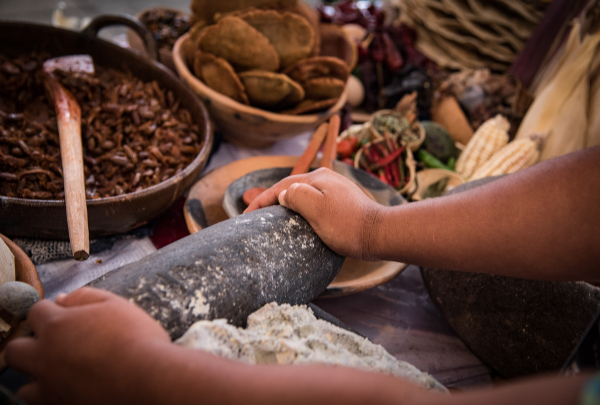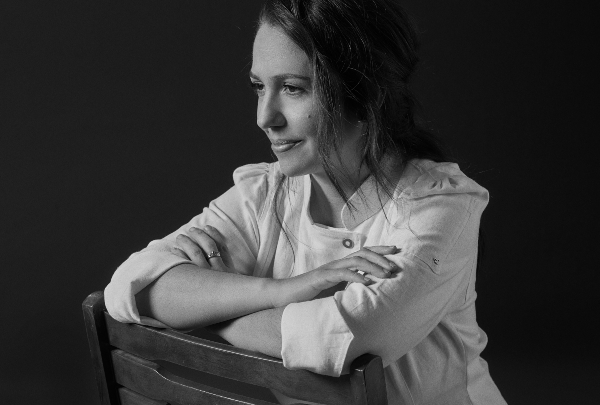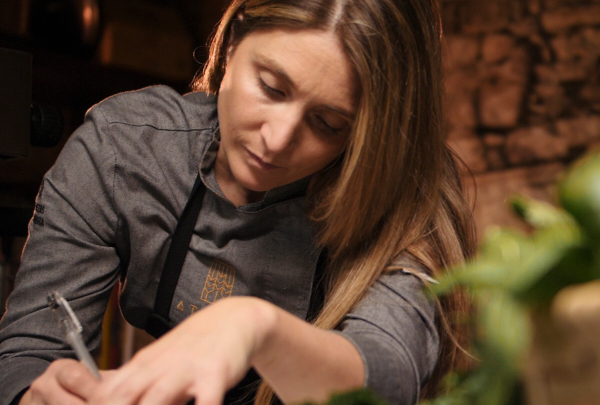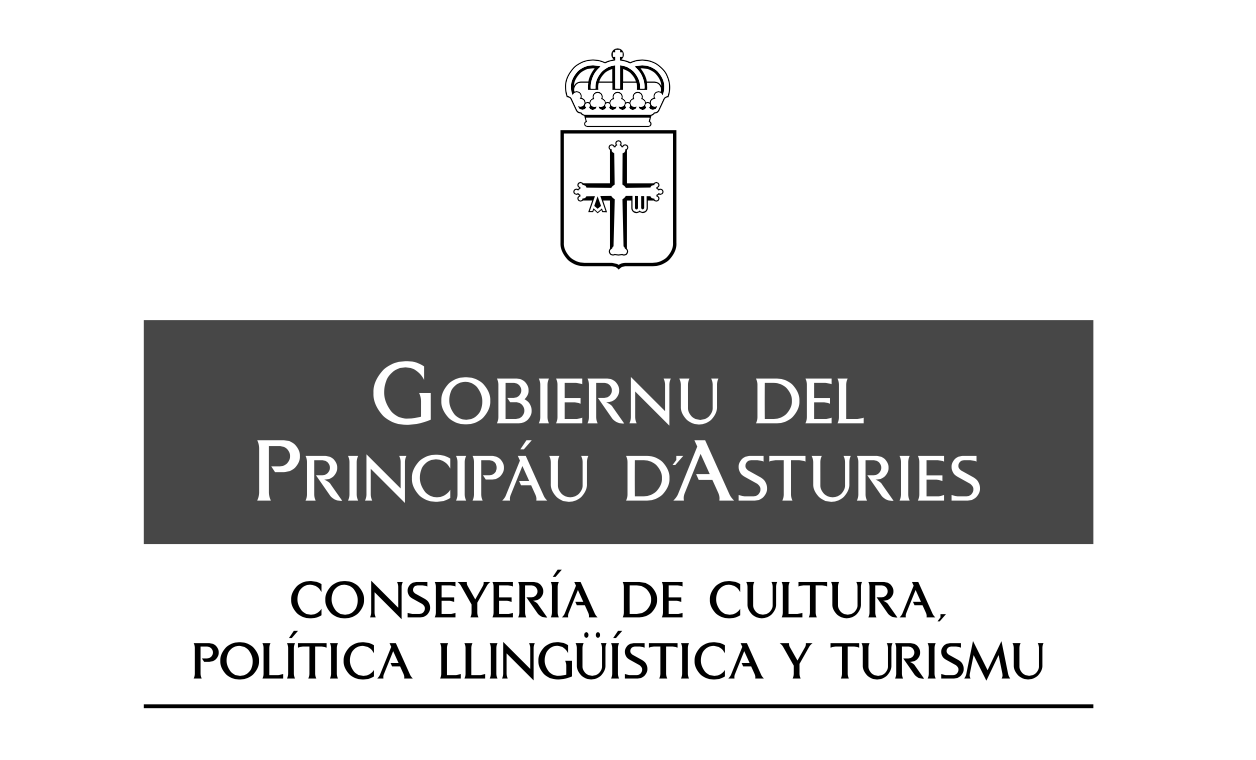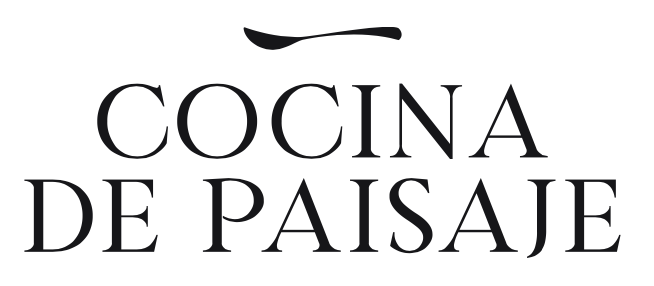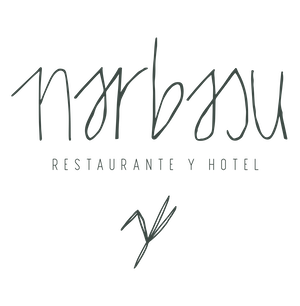Interview
Viri Fernández: “You can't make a good deconstruction of a fabada if you don't know how to make fabada”
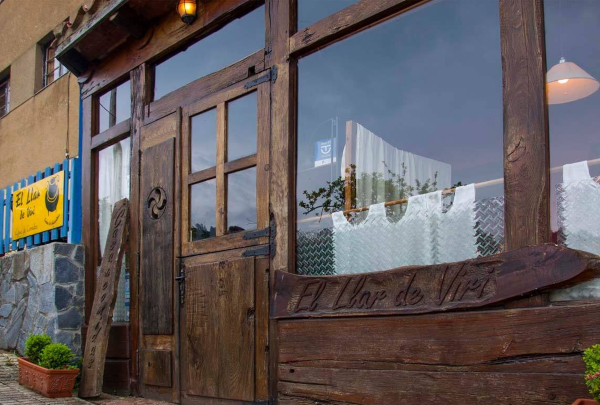
She says she has passed the torch to her son and daughter-in-law, and has stepped aside ... it will be tough work getting her out of that kitchen she set up in the late 90s in her village (San Román de Candamo, 30 km from Oviedo) to perpetuate the gastronomy she likes, knows how to cook and excels at it, traditional Asturian fare, the same food she learned to cook as a little girl, but undertook almost by chance after an accident that reshaped her future.
We talked to Viri Fernández, chef of El Llar De Viri and a founder member of the "Guisanderas Club", a group of female Asturias chefs who strive ("We don't fight - I don't like that word") to preserve the traditional culinary heritage of Asturias' gastronomy. We discussed tradition and state-of-the-art cuisine, Martín Berasategui, the deconstruction of "fabada" bean stews and, in particular, changing culinary trends. Fernández will shortly be speaking at FéminAS, “a congress which shows that my work hasn't been in vain".
There was no catering tradition in your family. You went from sales rep to chef ...
There was no tradition as such, but the family ate well. I learned to cook at boarding school with a nun, but I soon realised I was good at it. Circumstances led me to work as a sales rep, and that's something the family does know about. I never thought I'd end up as a stewmistress, but life has twists and turns, and in a wretched personal moment of my life I found myself wearing an orthopaedic brace, and I had to leave my job and rethink my life. What do I know how to do, and what can I do (it had to be something I could do standing up, because I was wearing the brace)? Chef and saleswoman. I combined both of them and opened a restaurant. So I cook because I can sell that.
Prosaic but realistic. The passion came later. She combined these passions and opened El Llar de Viri, a restaurant offering traditional food.
That was in 1996. What kind of food was I going to cook? Well, the food I was familiar with, the food I'd eaten, traditional food. The funny thing is that, at the time, the thing to eat was duck confit. This was when Ferran Adrià was around. Everyone was doing the same thing, and traditional food wasn't a trend. My sales self told me that doing what everyone else was doing wasn't very commercial, and so, because stews or fabadas, which were my thing, weren't fashionable, that's where I went.
Something has changed over time ...
It's a totally different kettle of fish now. Traditional food, the food of the past, is the in thing now, but this isn't just a passing trend. It's here to stay. And I'm happy with that. Especially with the fine produce and the fine farmers, which are the backbone of it all. Because at restaurants we're just intermediaries between the producers and the diners. We make something out of what they give us, and that if that something is good, the food will be good too, but if not, then the food won't be good. It's as simple as that.
Soon after you opened the restaurant, in 1997, you started the "Guisanderas" Club to keep your recipes alive. What were you trying to do? What are you trying to do?
I don't like the word "fight" - what we wanted, and what we want, is the old recipes to be preserved, to be made the way each person interprets them. We're in favour of slow cooking, using local produce and customs that have been handed down to us.
Where does the word “guisandera” come from?
It's an old word. "Guisandera" used to be the profession of the stewmistress. About 150 or 200 years ago, there was one in every district of Asturias, and she was an expert in recipes. They called her in to cook for celebrations, or whenever the sick had to be fed. The "guisanderas" were usually spinsters, independent women who did the rounds of people's homes. We wanted to pay homage to them, and so we named the club after them. Because they were our predecessors in the conservation of recipes and customs.
Is this a profession in Asturias alone?
They are from Asturias, but there have been similar women in many parts of Spain. I'm still researching this. What's important is the concept, so there are "guisanderas" everywhere. Even Martín Berasategui told me: “I'm the son of stewmistresses”. That's the idea.
You say you are faithful to honest cooking of local produce. Don't you use mousses or yellow chilli peppers in your recipes, for instance?
Not when the recipe is traditional. But we're all cooks and know how to use the ingredients, and we like to know about them. And we might do that, for example, for a special occasion or for something off the menu.
More curious stuff: You also say there's not just one way of cooking a recipe, and that each "guisandera" makes it in a different way, depending on their village or local tradition. Aren't there any universal recipes?
No. The only recipe that's done the same way all over Asturias is fabada. The others may have the same name, but they change. Bonito roll, for example, which we like at this time of year in Asturias, is made differently in each area.
It's not just about preserving tradition, but also speaking out about the role of women in cookery.
There was a time when women were not just invisible in cookery, but in every profession, and I think that's gradually changing now. We're getting there. Society is changing in a positive sense. And we stewmistresses are there to help out.
Do you go to restaurants offering modern cuisine? How do you feel about that? What about Casa Marcial, for example?
I love it. Or El Corral del Indianu. I feel fine at those places, I appreciate their work, and I love their cooking. The only thing I would mark down is the fact that the quantities are too small. With some of their dishes, I would just stop and ask for the whole pot ... no, seriously. I realise that traditional cuisine has a huge debt to modern cuisine, in the same way as modern cuisine has a huge debt to traditional cuisine. There's no conflict between them. The thing is, you can't make a good reconstruction of a fabada if you don't know how to make fabada. That's why there's good modern cuisine and poor modern cuisine, and good traditional cuisine and poor traditional cuisine.
What goes through your mind when you see a deconstruction of a fabada stew?
I remember the deconstruction of an Asturias "pote" stew I ate once with José Antonio Campoviejo (El Corral del Indianu) just after the restaurant opened - the same day, month and year as mine, in fact (2 July 1996). The recipe was a little glass with the stew purée, a small "compango" bread snack croquette, a bacon crunch and three faba beans. Three faba beans! I know what faba beans are worth, the top-quality fabas we use. So, being a saleswoman, I started to think about profitability. José Antonio makes this with three beans, and I use a kilo of them for mine! I told him that and we laughed, and we've been good friends since then. I think the recipe itself is genius. That's what modern cuisine is, genius. The problem is that there's also poor genius out there.
What would you ask of those great chefs?
I did ask once, at the Madrid Fusión event. Like Berasategui, I tell them to explain where they learned to cook, if they did learn, even if then they do their own cooking which, I repeat, I love. Also, since gastronomy is just another strut shoring up the economy, it's good to build a chain, with these great chefs leading the pack and explaining where the recipes come from, talking about the products and their origins.
And finally ... What do you think of a congress such as FéminAs, and the fact that it is in fact being staged in Asturias?
The most enormous pride. Many things have begun in Asturias, many demands have been made, and with all the pride of a "guisandera" and a woman from Asturias, I am satisfied and happy to be involved in FéminAs. It will be an honour and a pleasure to meet up with all those women who will be arriving from different places, but who won't be outsiders to us. Cookery in Asturias has also been adaptable because in Asturias we're emigrants, and we're used to taking in outsiders and assimilating. So, meeting up with them will be like meeting up with someone from my own family arriving to cook alongside me.
And also, because I'm stepping down now to leave the restaurant to my son and my daughter-in-law (María José “Majo” Miranda), in my opinion the congress shows that my work, all I've tried to preach, practise and explain, hasn't been in vain.
We talked to Viri Fernández, chef of El Llar De Viri and a founder member of the "Guisanderas Club", a group of female Asturias chefs who strive ("We don't fight - I don't like that word") to preserve the traditional culinary heritage of Asturias' gastronomy. We discussed tradition and state-of-the-art cuisine, Martín Berasategui, the deconstruction of "fabada" bean stews and, in particular, changing culinary trends. Fernández will shortly be speaking at FéminAS, “a congress which shows that my work hasn't been in vain".
There was no catering tradition in your family. You went from sales rep to chef ...
There was no tradition as such, but the family ate well. I learned to cook at boarding school with a nun, but I soon realised I was good at it. Circumstances led me to work as a sales rep, and that's something the family does know about. I never thought I'd end up as a stewmistress, but life has twists and turns, and in a wretched personal moment of my life I found myself wearing an orthopaedic brace, and I had to leave my job and rethink my life. What do I know how to do, and what can I do (it had to be something I could do standing up, because I was wearing the brace)? Chef and saleswoman. I combined both of them and opened a restaurant. So I cook because I can sell that.
Prosaic but realistic. The passion came later. She combined these passions and opened El Llar de Viri, a restaurant offering traditional food.
That was in 1996. What kind of food was I going to cook? Well, the food I was familiar with, the food I'd eaten, traditional food. The funny thing is that, at the time, the thing to eat was duck confit. This was when Ferran Adrià was around. Everyone was doing the same thing, and traditional food wasn't a trend. My sales self told me that doing what everyone else was doing wasn't very commercial, and so, because stews or fabadas, which were my thing, weren't fashionable, that's where I went.
Something has changed over time ...
It's a totally different kettle of fish now. Traditional food, the food of the past, is the in thing now, but this isn't just a passing trend. It's here to stay. And I'm happy with that. Especially with the fine produce and the fine farmers, which are the backbone of it all. Because at restaurants we're just intermediaries between the producers and the diners. We make something out of what they give us, and that if that something is good, the food will be good too, but if not, then the food won't be good. It's as simple as that.
Soon after you opened the restaurant, in 1997, you started the "Guisanderas" Club to keep your recipes alive. What were you trying to do? What are you trying to do?
I don't like the word "fight" - what we wanted, and what we want, is the old recipes to be preserved, to be made the way each person interprets them. We're in favour of slow cooking, using local produce and customs that have been handed down to us.
Where does the word “guisandera” come from?
It's an old word. "Guisandera" used to be the profession of the stewmistress. About 150 or 200 years ago, there was one in every district of Asturias, and she was an expert in recipes. They called her in to cook for celebrations, or whenever the sick had to be fed. The "guisanderas" were usually spinsters, independent women who did the rounds of people's homes. We wanted to pay homage to them, and so we named the club after them. Because they were our predecessors in the conservation of recipes and customs.
Is this a profession in Asturias alone?
They are from Asturias, but there have been similar women in many parts of Spain. I'm still researching this. What's important is the concept, so there are "guisanderas" everywhere. Even Martín Berasategui told me: “I'm the son of stewmistresses”. That's the idea.
You say you are faithful to honest cooking of local produce. Don't you use mousses or yellow chilli peppers in your recipes, for instance?
Not when the recipe is traditional. But we're all cooks and know how to use the ingredients, and we like to know about them. And we might do that, for example, for a special occasion or for something off the menu.
More curious stuff: You also say there's not just one way of cooking a recipe, and that each "guisandera" makes it in a different way, depending on their village or local tradition. Aren't there any universal recipes?
No. The only recipe that's done the same way all over Asturias is fabada. The others may have the same name, but they change. Bonito roll, for example, which we like at this time of year in Asturias, is made differently in each area.
It's not just about preserving tradition, but also speaking out about the role of women in cookery.
There was a time when women were not just invisible in cookery, but in every profession, and I think that's gradually changing now. We're getting there. Society is changing in a positive sense. And we stewmistresses are there to help out.
Do you go to restaurants offering modern cuisine? How do you feel about that? What about Casa Marcial, for example?
I love it. Or El Corral del Indianu. I feel fine at those places, I appreciate their work, and I love their cooking. The only thing I would mark down is the fact that the quantities are too small. With some of their dishes, I would just stop and ask for the whole pot ... no, seriously. I realise that traditional cuisine has a huge debt to modern cuisine, in the same way as modern cuisine has a huge debt to traditional cuisine. There's no conflict between them. The thing is, you can't make a good reconstruction of a fabada if you don't know how to make fabada. That's why there's good modern cuisine and poor modern cuisine, and good traditional cuisine and poor traditional cuisine.
What goes through your mind when you see a deconstruction of a fabada stew?
I remember the deconstruction of an Asturias "pote" stew I ate once with José Antonio Campoviejo (El Corral del Indianu) just after the restaurant opened - the same day, month and year as mine, in fact (2 July 1996). The recipe was a little glass with the stew purée, a small "compango" bread snack croquette, a bacon crunch and three faba beans. Three faba beans! I know what faba beans are worth, the top-quality fabas we use. So, being a saleswoman, I started to think about profitability. José Antonio makes this with three beans, and I use a kilo of them for mine! I told him that and we laughed, and we've been good friends since then. I think the recipe itself is genius. That's what modern cuisine is, genius. The problem is that there's also poor genius out there.
What would you ask of those great chefs?
I did ask once, at the Madrid Fusión event. Like Berasategui, I tell them to explain where they learned to cook, if they did learn, even if then they do their own cooking which, I repeat, I love. Also, since gastronomy is just another strut shoring up the economy, it's good to build a chain, with these great chefs leading the pack and explaining where the recipes come from, talking about the products and their origins.
And finally ... What do you think of a congress such as FéminAs, and the fact that it is in fact being staged in Asturias?
The most enormous pride. Many things have begun in Asturias, many demands have been made, and with all the pride of a "guisandera" and a woman from Asturias, I am satisfied and happy to be involved in FéminAs. It will be an honour and a pleasure to meet up with all those women who will be arriving from different places, but who won't be outsiders to us. Cookery in Asturias has also been adaptable because in Asturias we're emigrants, and we're used to taking in outsiders and assimilating. So, meeting up with them will be like meeting up with someone from my own family arriving to cook alongside me.
And also, because I'm stepping down now to leave the restaurant to my son and my daughter-in-law (María José “Majo” Miranda), in my opinion the congress shows that my work, all I've tried to preach, practise and explain, hasn't been in vain.

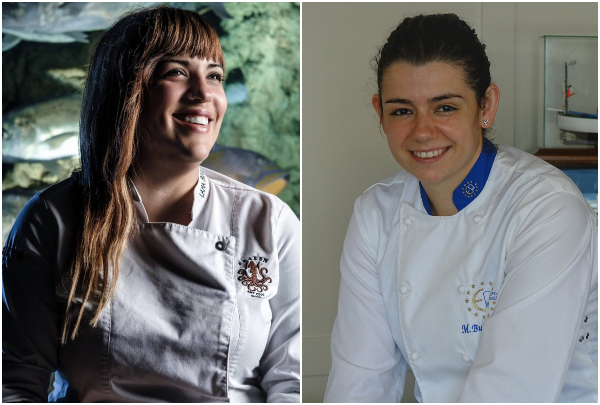
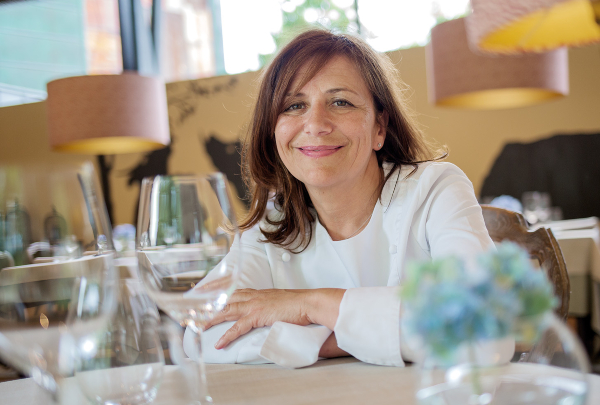

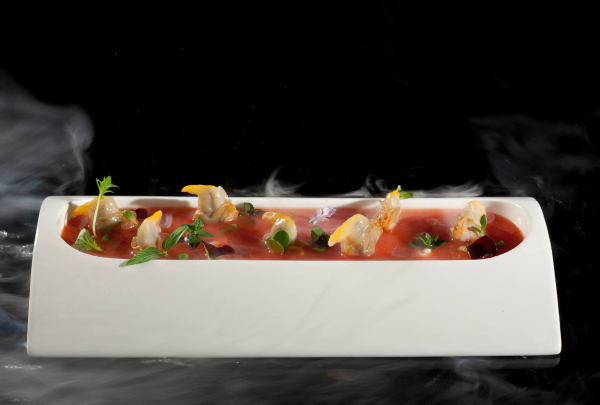

.jpg)
